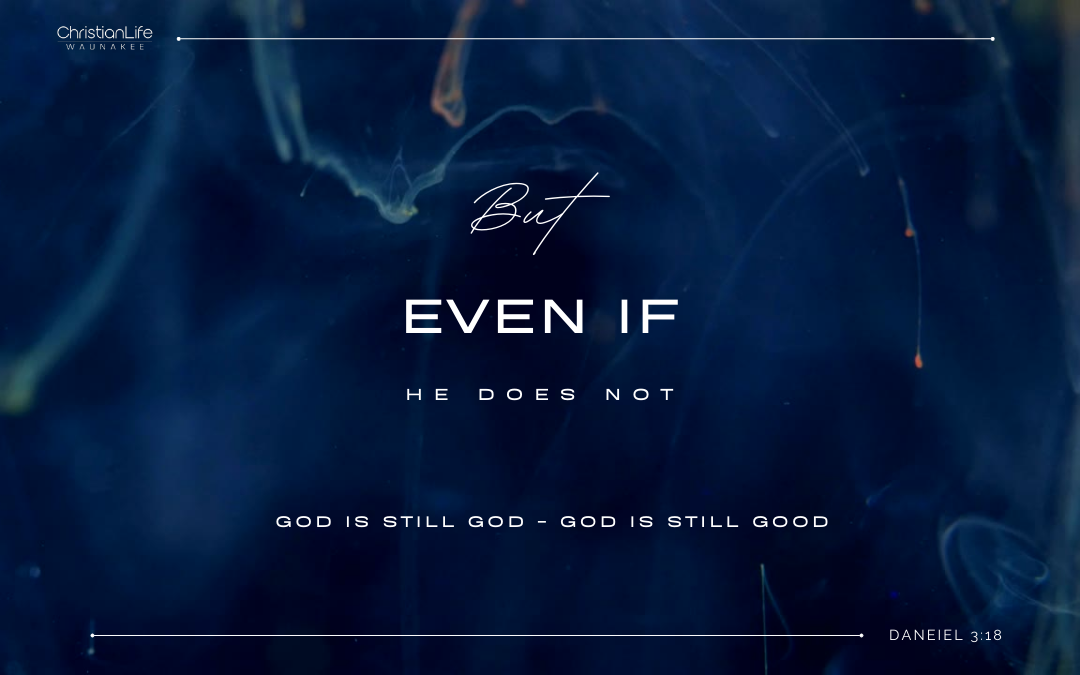The Silver Chair and the Fiery Furnace
“Do you mean you think everything will come right if we do untie him?” said Scrubb.
“I don’t know about that,” said Puddleglum. “You see, Aslan didn’t tell Pole what would happen. He only told her what to do. That fellow will be the death of us once he’s up, I shouldn’t wonder. But that doesn’t let us off following the sign.” –The Silver Chair, C.S. Lewis
In this excerpt from book 6 of the Narnia series, Scrubb, Pole, and Puddleglum are debating whether or not to free a prince from the silver chair he is tied to. Aslan has given a ‘sign’ that the first time anyone asks for something in his name, they are to do what that person asks. They believe the prince is tied because of an enchantment that makes him lose touch with reality and become violent. They are convinced that he will kill them if released and have promised not to do so, but he has just appealed to them for release in the name of Aslan.
Of course, in the story everything does “come right,” but what if it didn’t? In the Bible we see three other people similarly realize that they’re facing something terrible and that God might not deliver them from it—and they’re okay with that.
During the Babylonian captivity, when many Jews (including Daniel) were brought to live in Babylon, King Nebuchadnezzar commissioned a 90-foot-high gold statue and commanded that everyone bow to it and worship it when they heard music. Three Jewish men known as Shadrach, Meshach, and Abednego refused. They were brought before Nebuchadnezzar, who issued an ultimatum: worship the statue or be burnt alive in an especially hot furnace. “What god,” he said, to emphasize their helplessness, “will be able to rescue you from my hand?” (Daniel 3:15). Here is their answer:
“If we are thrown into the blazing furnace, the God we serve is able to deliver us from it, and he will deliver us from Your Majesty’s hand. But even if he does not, we want you to know, Your Majesty, that we will not serve your gods or worship the image of gold you have set up.” (Daniel 3:17-18, emphasis added)
Shadrach, Meshach, and Abednego were willing to die rather than worship an idol. They knew that God could save them but had no guarantee that He would. I’m sure they had already seen many atrocities during the captivity that aren’t recorded for us. The very fact that God allowed the captivity to happen demonstrates that He doesn’t deliver from everything. Nonetheless they wanted Nebuchadnezzar to know that their deaths would not mean God’s lack of power. Even though God did miraculously save them from harm in the end, their refusal to comply to save their own lives alone is a witness to their faith in His ability and goodness.
In their answer to the king, Shadrach, Meshach, and Abednego demonstrate
- Certainty in the belief that God can save them from harm.
- Acknowledgement that their agenda isn’t necessarily God’s (God’s ways are not their ways).
- Commitment to do what’s right either way.
- Belief that God is still God and still good even if He chooses not to help them.
Incidentally, the trio in The Silver Chair demonstrate the same qualities when they decide to untie the prince, whatever the consequences.
“But even if He does not,” I think, is one of the bravest statements we can make when facing difficulty. There’s no guarantee that being one of God’s people means physical safety. Even though we pray believing that God can and will answer us, sometimes He does say no. We need to pray believing, pray according to His will, but always be prepared with what we will do “if not.” If God chooses not to deliver, will it break your faith, or will you serve and praise Him anyway?
—————————————————

